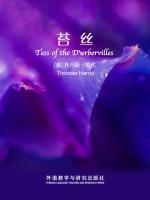Unveiling the Soul
刘星男
In the realm of classic literature, Thomas Hardy's 'Tess of the
d'Urbervilles' stands as a poignant exploration of societal norms,
personal fate, and the indomitable spirit of its eponymous heroine. As I
turned the final page, I found myself not merely reading a story, but
witnessing a profound tragedy etched into the fabric of human existence.
Tess, the pure woman wronged by circumstance and society, became more
than a character; she was a mirror reflecting the injustices faced by
women in Victorian England. Her purity was not defined by her chastity,
which was repeatedly violated, but by her unwavering honesty and
resilience in the face of adversity. Hardy masterfully crafts Tess's
journey, from her humble beginnings to her tragic end, with a narrative
that is both lyrical and heartrending. The novel's subtitle, 'A Pure
Woman,' serves as a bold statement against the double standards of the
time. Tess's downfall begins not with her own actions, but with the sins
of men who exploit her vulnerability. The character of Alec d'Urberville
embodies the predatory nature of those who wield power, while Angel
Clare represents the flawed idealism of a man unable to see beyond his
own prejudices. Through these contrasting male figures, Hardy critiques
the moral hypocrisy that condemns Tess while excusing her oppressors.
As Tess navigates the labyrinth of her life, the landscape of Wessex
becomes a character in itself, imbued with the same beauty and cruelty
that mark her existence. Hardy's vivid descriptions of the countryside
serve not only to ground the narrative in a tangible reality but also to
symbolize the cyclical and often harsh nature of fate. The agricultural
rhythms of life mirror Tess's own struggles, as she is bound by the very
forces that sustain her. The theme of fate versus free will permeates
the narrative, challenging the reader to ponder whether Tess's destiny
was sealed by the hand of God, the whims of society, or her own choices.
Hardy leaves this question open, perhaps intentionally, to provoke
thought on the larger issues of justice and morality. In the end,
Tess's story transcends its historical context to speak to universal
truths about the human condition. Her tale is one of love, loss, and
redemption, albeit tragically incomplete. It is a reminder of the
enduring strength of the individual in the face of overwhelming odds and
a call to examine the structures that perpetuate inequality. Reading
'Tess of the d'Urbervilles' has been a deeply moving experience, leaving
me with a sense of melancholy and admiration. Melancholy for the lost
innocence and wasted potential, and admiration for the courage and
dignity with which Tess faced her tribulations. Hardy's masterpiece is
not just a novel; it is a timeless testament to the struggle for
identity and the quest for meaning amidst the complexities of life. In
closing, 'Tess of the d'Urbervilles' is a literary journey that
resonates long after the last word has been read. It is a call to
empathy, a plea for understanding, and a celebration of the human
spirit's capacity to endure. Tess's story may have concluded on the
page, but within the hearts of readers, her legacy continues to inspire
reflection and compassion.



 京公网安备 11010802032529号
京公网安备 11010802032529号